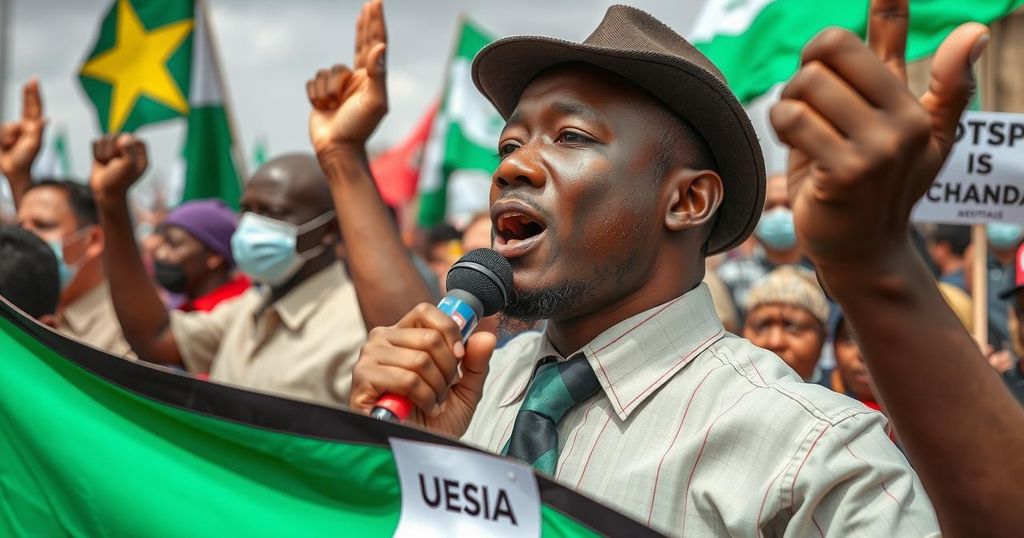Chadian Opposition Demands Cancellation of Elections Amidst Boycott Claims

Chadian opposition parties are urging the cancellation of the December 29 elections, asserting that voter turnout was significantly lower than reported and calling for a new transitional government. The elections aim to conclude a three-year transition following the death of President Idriss Deby. Tensions between the government and opposition are escalating as allegations of election rigging emerge, with threats of chaos if calls for protests are heeded.
Chad is currently experiencing tension as opposition parties demand the cancellation of the upcoming general elections scheduled for December 29. They claim that these elections have been largely boycotted by the population and contest the credibility of the Electoral Management Body, which insists that it will proceed with counting and announcing the results while asserting that reported irregularities will not alter the election outcome. Assane Bairra, the vice president of the National Agency for the Management of Elections (ANGE), has indicated that around 36% of the 8.3 million registered voters participated in the elections, conducted to conclude a three-year transitional government following the death of former President Idriss Deby in April 2021. However, opposition representatives, like Avocksouma Djona from GCAP, argue that actual participation was significantly lower due to public compliance with boycott directives to protest the ruling party’s grip on power.
The opposition’s discontent is rooted in the continuation of power by the Deby family, as Mahamat Idriss Deby, the late president’s son, emerged victorious in the previous elections. Succes Masra, president of The Transformers, has demanded a new transition characterized by truth and reconciliation to cultivate a more inclusive political framework. Concerns about potential societal unrest loomed large as he warned that ongoing tensions might escalate into violence. Political analyst Yamingue Betinbaye remarked on the legitimacy of the opposition’s claims regarding election irregularities but regarded it as improbable that authorities would heed calls to annul the elections.
The government has dismissed opposition calls as attempts to destabilize the nation, urging citizens to refrain from participating in protests. With provisional results anticipated by January 15, the political landscape in Chad remains precariously balanced between government assertions and opposition grievances, hinting at a challenging path ahead for Chad’s democratic aspirations.
The current political climate in Chad stems from a transition initiated following the death of longstanding President Idriss Deby in 2021, which has seen Mahamat Idriss Deby take over leadership. The transitional government was supposed to lead to elections that would restore democratic governance; however, accusations of election rigging and calls for boycotts from opposition parties have complicated the electoral process. The atmosphere remains charged with distrust, as the opposition positions itself against perceived authoritarian practices by the ruling party, lending urgency to their appeals for a new political transition.
The opposition in Chad has vocally opposed the forthcoming elections, challenging the legitimacy of the electoral process and decrying low voter turnout numbers. Calls for a new transitional phase reflect a broader discontent with the prevailing political path, while government responses suggest a willingness to maintain the status quo. With tensions high and potential for unrest, the situation in Chad remains fraught as provisional election results loom on the horizon.
Original Source: www.voanews.com






